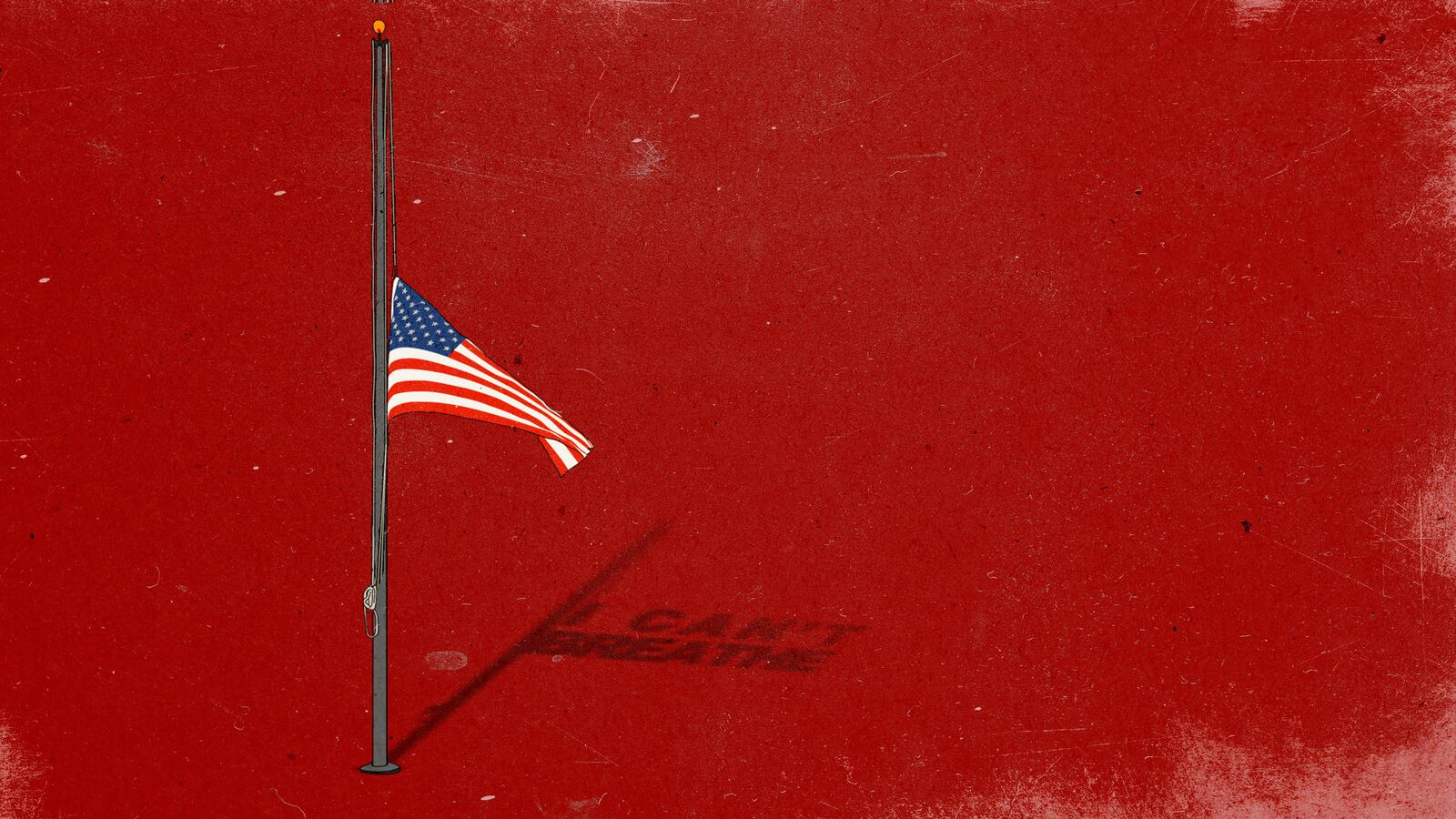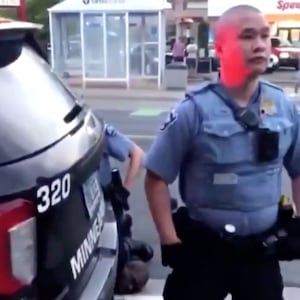George Floyd’s dying words as Minnesota Police Officer David Chauvin callously pushed his knee into Floyd’s neck and watched his life fade away captured the perpetual struggle for breath, life, and liberation from the suffocating knee of white oppression that has defined Black life in America.
“I can’t breathe” is a generational cry, echoing and reverberating throughout the Black community that has been pleading for breath for centuries, and we know America has no desire to hear us.
The fact that Floyd resembles and is good friends with former NBA player Stephen Jackson, who called Floyd “twin,” reminds us that America’s systemic terror can befall all Black Americans. We were one degree away from watching a video of the police killing a Black celebrity.
Watching the video of Floyd struggling for life and pleading for breath, I heard the voice of Eric Garner and remembered the millions of activists who propelled the Black Lives Matter movement. I thought about President Barack Obama’s speech on Trayvon Martin, where he said that “If I had a son, he’d look like Trayvon.”
I thought about what it was like to have a president who cared about Black people, and about the cultural regression that has engulfed America since 2016.
America remains a society and culture that does not care about Black life and yearns for Black submission and oppression. The scope of the oppression is so profound and all-consuming that America recoils at defining our systemic national terrorism because that would shatter our false narrative of American exceptionalism.
To stop these killings we must name this terror, and the name of our terror is ethnocide.
In 1941, Raphael Lemkin, a Polish Jew and distinguished lawyer and linguist, immigrated to America as he fled the Nazis. Committed to human rights, he pleaded with American government officials to stop the atrocities committed by the Nazis against the Jewish people. As American bureaucrats ignored his cries, he concluded that he needed to coin a new word to define the terror befalling his people and in 1944 he coined the words genocide and ethnocide, which he saw as interchangeable.
Academics and activists later drew a distinction between the two, with genocide referring to the destruction of a people and their culture and ethnocide referring to the destruction of a culture while the people remain. Ethnocide has been used to refer to the plight of indigenous people and the threat of colonization, and it also applies to the transatlantic slave trade.
For hundreds of years, European colonizers systematically worked to destroy the culture of African people, but exploit their bodies. Cultural erasure became the foundation of the chattel slavery system that white colonizers forged in America. African tribal and familial bonds were shattered. African people could no longer speak their languages, wear their clothing, or practice their religions.
We could no longer self-identify as Igbo, Yoruba, or Malian; ethnocidal European colonizers renamed us niggers, negro, colored, and black. (I capitalize Black elsewhere because “black” is a color and not a culture or proper noun in American grammar, and a de-cultured identifier is an indicator of ethnocide. As a people with a culture, our cultural identifier should be a proper noun; thus Black should be capitalized. I used “black” in the preceding sentence to refer to what white ethnocidal culture chose to call us, as they destroyed our African culture.)
Europeans also named themselves white, and in America white people created the one-drop rule to sustain a racial distinction between oppressor and oppressed.
Living off of the destruction of lives is the foundation of America, and it still shapes every facet of our society today. It is ethnocide.
Floyd’s cries are the same as those of the first Africans bought as cargo, stacked on top of each other, and loaded into the hull of slave ships over 500 years ago. White people did not hear their cries for breath then, and many still do not hear our cries today.
As a white American, Amy Cooper had the option of inflicting terror upon a Black man and did so. The tone of her voice, the choice of her words, the feigned, and pitch-perfect pleading with the 911 operator represented an ethnocidal cultural indoctrination that had been passed down for generations. Witnessing Cooper speak, we heard echoes of Carolyn Bryant falsely accusing Emmitt Till.
The cops who killed George Floyd nonchalantly stood around as he died, and onlookers refrained from intervening because preventing the police from killing a Black man would provide the police with the justification for killing them too.
After Gregory and Travis McMichael killed Ahmaud Arbery in February, Georgia’s law enforcement worked to erase the crime as the McMichaels went home and waited for things to blow over.
The McMichaels, like Cooper, denied that they were racists after videos of their actions circulated. This is a pivotal aspect of American ethnocide: that white people are the ultimate judges of the goodness of their own actions and motives.
Recall Trump’s defense of neo-Nazis at Charlottesville: “You also had some very fine people on both sides.”
When systematic terror is normalized, institutionalized and legalized, atrocities appear to be banal and unavoidable facets of life.
The daily, unjust deaths of Black Americans often feel like a banal and an unavoidable facet of American life because that has always been the intent of American ethnocide.
At a time when Black Americans and people of color have more influence in society, and fewer white Americans appear committed to living via atrocity, the way to change that ethnocidal status quo is by using the word to define and combat the terror we all live within.







